New deadly clashes hit Libyan capital despite UN call for ‘lasting ceasefire’
Civilian casualties have been reported after warring sides in crisis-hit Libya clashed in capital Tripoli, just a day after a United Nations Security Council resolution called for a “lasting ceasefire.”
Since 2014, two rival seats of power have emerged in the North African country: the internationally-recognized government of Prime Minister Fayez al-Sarraj, known as the Government of National Accord (GNA), and another group based in the eastern city of Tobruk, supported militarily by rebel forces under the command of renegade general Khalifa Haftar.
The rebel leader is primarily supported by the United Arab Emirates, Egypt and Jordan.
The rebels launched an offensive to capture the capital, Tripoli, the seat of the GNA, in April last year. Despite intense fighting, they have so far failed to achieve their objective, and the offensive has stalled outside the capital.
On Thursday, the latest wave of violence occurred on the southern outskirts Tripoli that either killed or wounded some civilians, GNA spokesman Moustafa al-Mejii confirmed.
“Haftar's militias tried to advance in the region of Machrou al-Hadhba, but our forces repelled the attack,” he said.
According to witnesses, explosions were carried out in the largely agricultural area of Machrou al-Hadhba, some 30 kilometers south of Tripoli.
Separately, the capital’s sole functioning airport of Mitiga, which has been frequently closed by violence, announced that it was again suspending flights following a rocket attack.
The residential neighborhoods of southern Tripoli came under rocket attack, claiming the life of a woman and wounding four other civilians, said Amin al-Hachimi, a spokesman for the health ministry.
The Security Council resolution, the council's first since the onset of Haftar’s offensive in April, was adopted on Wednesday, affirming “the need for a lasting ceasefire in Libya at the earliest opportunity, without pre-conditions.”
It also called for continued talks by a joint military commission formed last month between the two rival forces, with the aim of achieving a “permanent ceasefire.” This would include a monitoring mechanism, a separation of forces and confidence-building measures.
Last month, a peace summit was held in the German capital of Berlin with the participation of leaders from Turkey, Russia, Egypt, France, Italy, Britain, and the United States, as well as Sarraj and Haftar, to help broker peace in Libya.
The final communiqué of the day-long summit, the first such event since 2018, called on all the parties concerned in the conflict “to redouble their efforts for a sustained suspension of hostilities, de-escalation and a permanent ceasefire.”
Participants also pledged not to interfere in Libya’s internal affairs and its conflict and agreed to “fully respect” the arms embargo imposed on the North African country by the UN in 2011.
However, Haftar refused to sign the joint communiqué.
To further complicate the situation in the Arab country, Turkey reached a military agreement with the GNA recently and, on Sarraj's request, pledged to send troops to Libya to help his government defend itself against Haftar’s attacks.
While Ankara has since the Berlin summit said it would hold off the dispatch of troops to Libya, reports have already emerged of Turkey sending allied militants from Syria to the North African country.
Since 2011, Libya has been under a tight UN arms embargo, but it has frequently been abused as arms have continued to flow into the country.
Earlier in this month, UN Secretary-General Antonio Guterres said the embargo "remains violated" and lambasted continued foreign interference in Libya as a "scandal.”
According to the UN figures, more than 1,000 people have lost their lives in the clashes between Haftar and the GNA since April, while another 140,000 have been displaced.
Libya initially plunged into chaos in 2011, when a popular uprising and a NATO intervention led to the ouster of long-time dictator Muammar Gaddafi and his execution by unruly fighters.
Iraq's First Lady urges US to 'leave the Kurds alone'
Iranian Army vows revenge after 'cowardly attack' by US Navy on Frigate Dena
Iran carries out 20th wave of Op. True Promise 4 against Zionist entity, US bases
Araghchi to Trump: Plan A of military victory failed, Plan B will be 'bigger failure'
USS Abraham Lincoln flees after precision strike by IRGC drones in Sea of Oman
Yemen signals readiness for unified front with Iran against US-Israeli war coalition
Iran’s Army and IRGC destroy seven more Hermes, MQ-9 drones in retaliatory ops
'Iran no place for Hell dwellers': Iran’s security chief warns against ground offensive


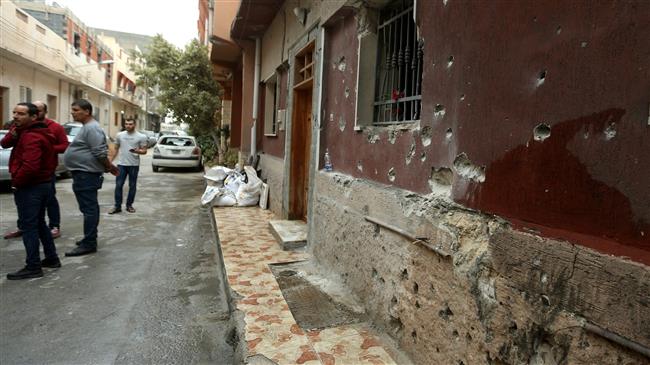



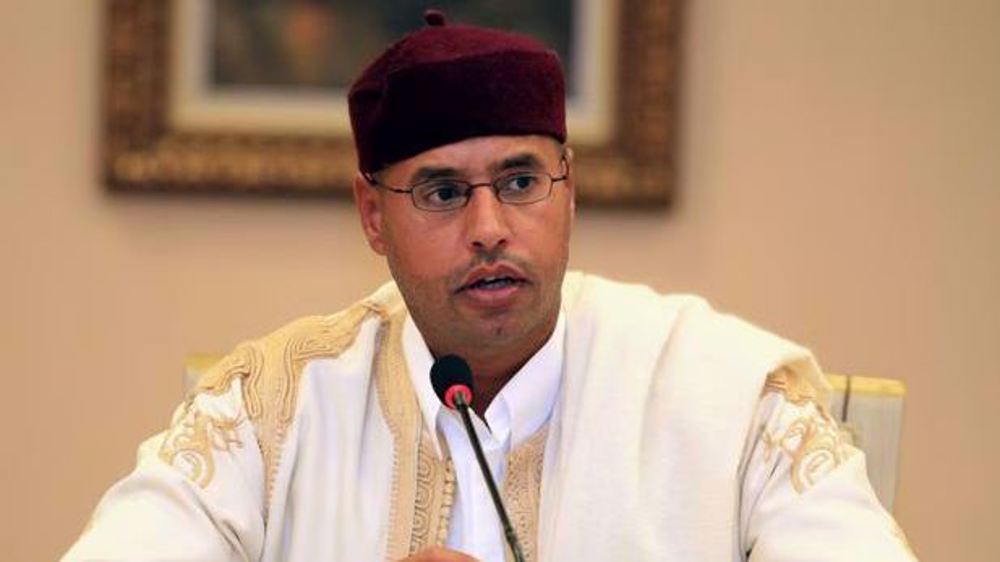
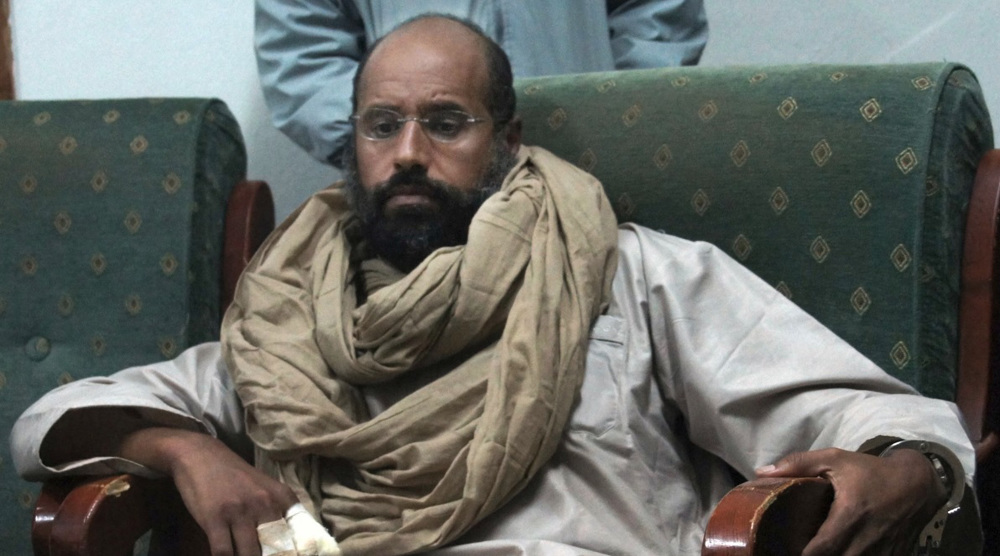



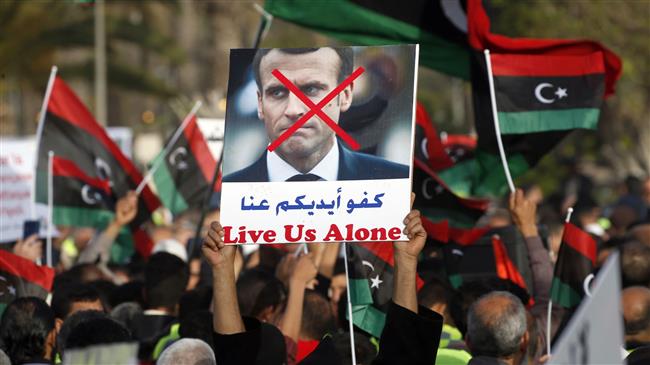


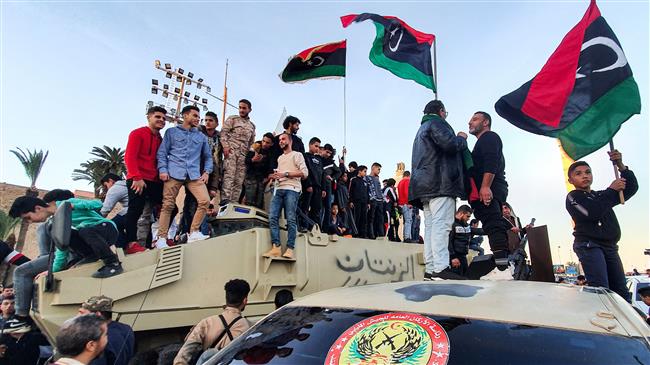
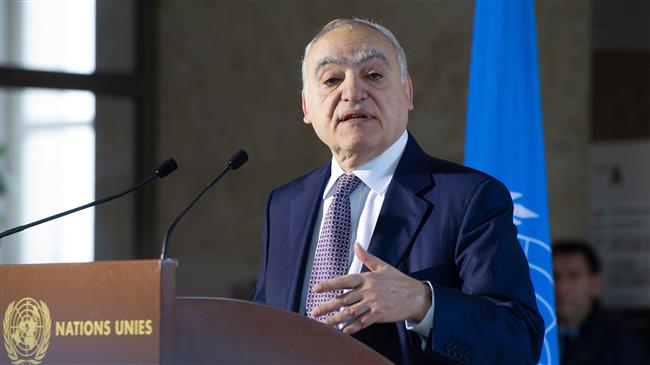

 This makes it easy to access the Press TV website
This makes it easy to access the Press TV website